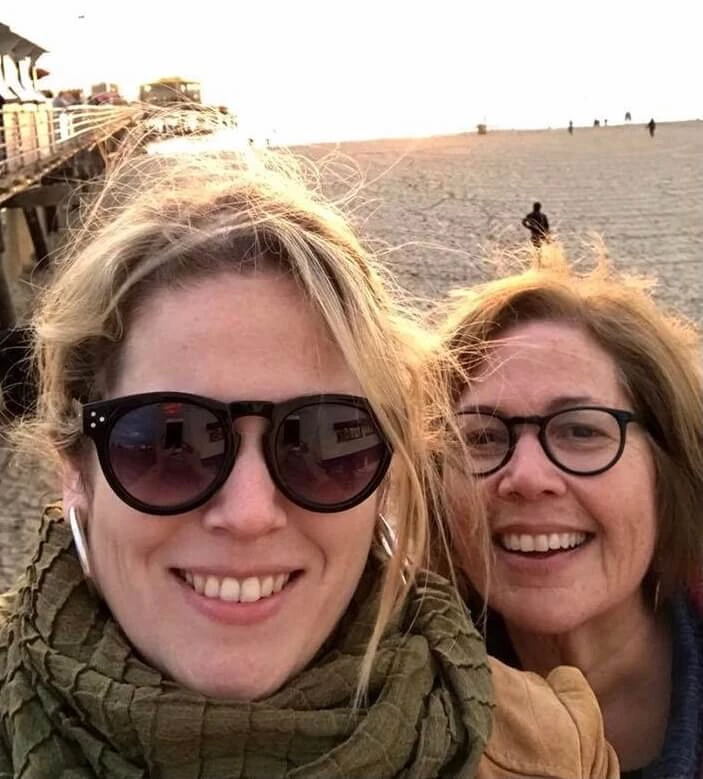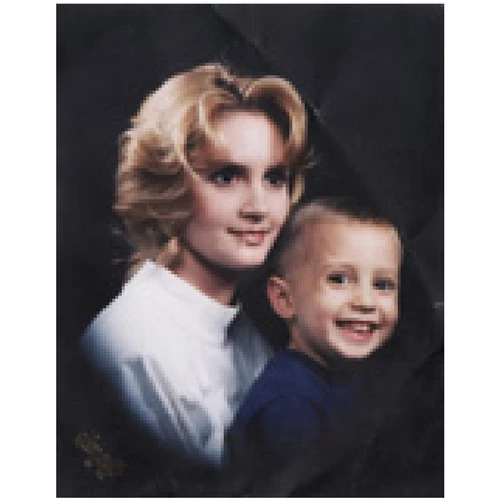Sandy L.
"My cell phone rang and it was my daughter, Jordan. I was about to tell her that I would call her back, when I realized that she was crying. I left the table and heard words that I will probably never forget: 'they found something on my MRI.'"
Last October, my husband and I were having lunch with a group of friends at a beachfront restaurant in Delaware, where we were on vacation. My cell phone rang and it was my daughter, Jordan. I was about to tell her that I would call her back, when I realized that she was crying. I left the table and heard words that I will probably never forget, “they found something on my MRI”.
About two years earlier, at a routine gynecological check up, Jordan’s doctor recommended that she consider having genetic testing. This was based on our family history of multiple cancers as well as recognizing her very Jewish last name as possibly related to the Ashkenazi Jewish heritage. These two factors are known to have a genetic link to certain cancers. Jordan agreed to the testing which was done through a routine blood draw, right in the office.
A few weeks later, a follow up appointment was made with a genetic counselor where it was revealed to Jordan that she carried a genetic mutation known as BRCA1. Research has determined that close to 80 percent of women with the BRCA1 gene develop breast cancer in their lifetime. Also significant is an increased risk of ovarian cancer.
Having determined this information, a protocol was recommended by her doctor where Jordan would be closely monitored for these cancers. She was to have a mammogram and breast MRI alternately every 6 months, along with annual ovarian ultrasound. At 35 years old, she would not normally have been eligible for mammograms, let alone breast MRI screening, but having this genetic marker, her insurance would allow this testing.
During this process, it was also recommended that Jordan’s dad and I get the same genetic testing. Our results showed that I did not carry the gene mutation but my husband did. Interestingly, males too can pass this down to their children and, although not as statistically significant as women, men with the BRCA gene have an increased risk of breast cancer.
As our family settled into this new reality, Jordan went ahead and diligently followed her suggested testing regime of mammograms and MRI’s. Although always in the back of my mind, what worried me was that somewhere down the road, perhaps in her 50’s, she might face breast cancer. I felt horrible about this but convinced myself that by that time there would be significant advances and maybe it would be no big deal. I never imagined that at 37 years old she would develop breast cancer.
Shortly after the phone call in Delaware, we returned to New York and Jordan, who lives in Washington, DC, was scheduled for a biopsy. When the news came that she had two small malignant tumors in her breast, we were devastated. She was diagnosed with triple negative breast cancer. Jordan composed herself rather quickly and set about scheduling the many doctor appointments and further testing that needed to happen. I will admit that she did much better at pulling together her inner resources than I did.
Her oncologist and her breast surgeon recommended an aggressive treatment plan of chemotherapy first, followed by surgery. Jordan has opted for a double mastectomy as all agreed that this is sensible. The plan is to eradicate this cancer since it was caught so early and to give the best chance of eliminating any recurrence.
At this time, we are halfway through the 5 months of chemotherapy. Although it hasn’t been easy, Jordan has been lucky as her side effects have been much less than they could have been. Surgery and reconstruction is scheduled for a few months from now.
In summary, we are so thankful that the genetic testing provided Jordan with the knowledge to combat the potential of cancer through regular screening that would not have been available to her without it. Since it is not possible to feel the tumors that she has, we would never have known they were there until, well we cannot even think about that.
At Jordan’s initial separate appointments with her oncologist and surgeon, both doctors made the exact same comment, word for word. “Kudos to your gynecologist for recommending genetic testing”. We heartily agree.
Are you a survivor, spouse, friend, or caretaker with a story to tell? We'd love to hear from you.



